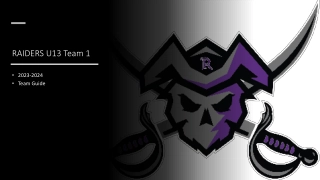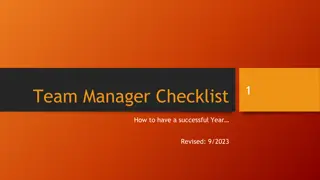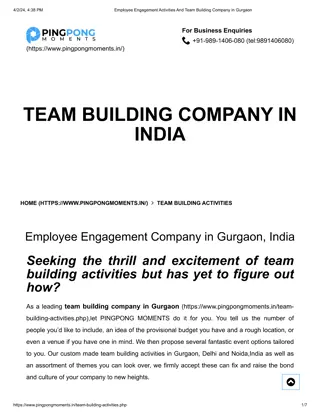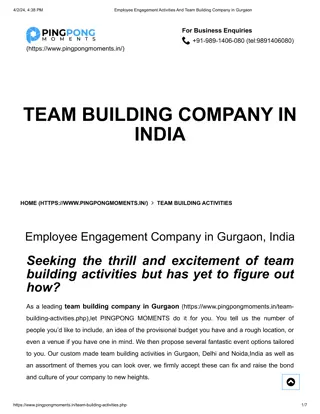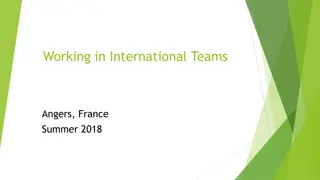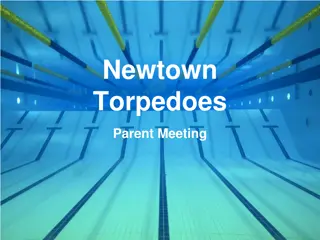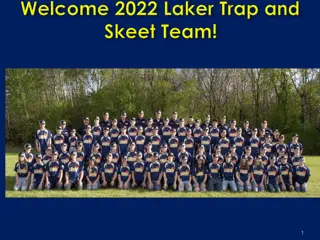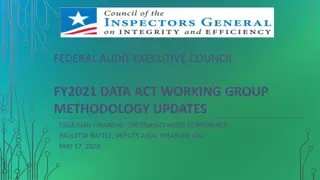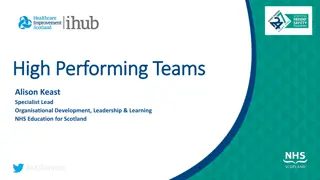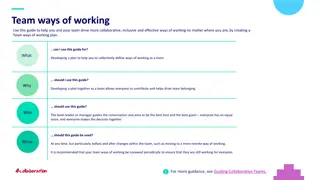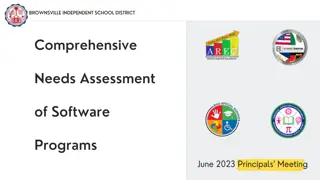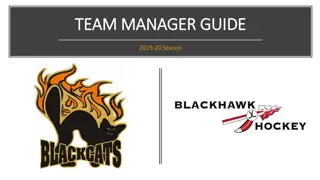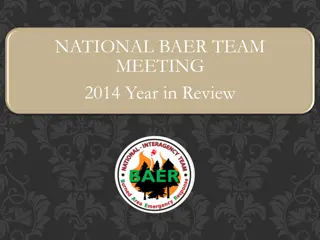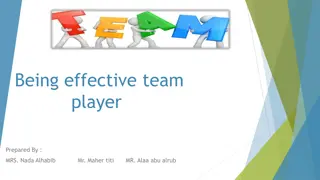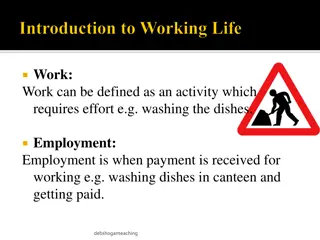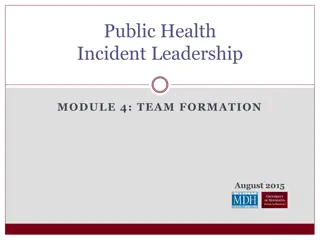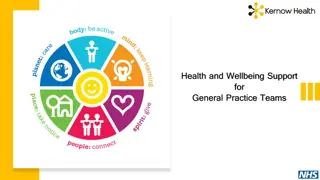
Teamwork and Team Building Process in Organizations
Explore the concepts of teamwork, team building, objectives, team structure, types of teams, goals, contributor skills, ground rules, and team process in this comprehensive article. Enhance your knowledge to foster collaboration and success within teams.
Download Presentation

Please find below an Image/Link to download the presentation.
The content on the website is provided AS IS for your information and personal use only. It may not be sold, licensed, or shared on other websites without obtaining consent from the author. If you encounter any issues during the download, it is possible that the publisher has removed the file from their server.
You are allowed to download the files provided on this website for personal or commercial use, subject to the condition that they are used lawfully. All files are the property of their respective owners.
The content on the website is provided AS IS for your information and personal use only. It may not be sold, licensed, or shared on other websites without obtaining consent from the author.
E N D
Presentation Transcript
BISHA UNIVERSITY COLLEGE OF ARTS &SCIENCE TATHLEET.
What is Teamwork & Team Building Teamwork Concept of people working together as a team Team player A team player is someone who is able to get along with their colleagues and work together in a cohesive group Team Building Process of establishing and developing a greater sense of collaboration and trust between members
Objectives Be able to define team structure Develop a team process Learn about team culture
Team Structure Team Structure What type of team? What is the purpose of the team? Who is the leader of the team?
Types of Teams Types of Teams Work Teams Task Teams Management teams
Goals Goals Once the team s purpose is clarified, team members must set the goals the team wishes to accomplish!
Contributor Skills Initiation - draw out information, clarify ideas Energize - show enthusiasm, engage in team process, show commitment Organize Build relationships Be flexible Learn
Ground Rules When and where the team meets Substitutes allowed at meetings Team records, what,who,how Work expectations of members Confidentiality Participation ...
Team Process Adjustment Cohesion Development Formation Reinforcement Definition Renewal Learning Transformation
Stages of Team Growth. It is important for the team members to know that teams don't just form and immediately start working together to accomplish great things. There are actually stages of team growth and teams must be given time to work through the stages and become effective. Team growth can be separated into four stages. 4/12/2025 13
Stages in Team WORK Forming Storming Norming Performing
Stage #1- Forming When a team is forming, members cautiously explore the boundaries of acceptable group behavior. They search for their position within the group and test the leader's guidance. It is normal for little team progress to occur during this stage. 4/12/2025 15
Formation Formation First meeting of the team Define what they need to accomplish and how the team will operate Develop measures for short and long term success Having short term goals, Long term is the ultimate purpose Establish ground rules of operation
Stage #2- Storming Storming is probably the most difficult stage for the group. Members often become impatient about the lack of progress, but are still inexperienced with working as a team. Members may argue about the actions they should take because they faced with ideas that are unfamiliar to them and put them outside their comfort zones. Much of their energy is focused on each other instead of achieving the goal. 4/12/2025 17
Stage #3- Norming During this stage team members accept the team and begin to reconcile differences. Emotional conflict is reduced as relationships become more cooperative. The team is able to concentrate more on their work and start to make significant progress. 4/12/2025 18
Stage #4- Performing By this stage the team members have discovered and accepted each other's strengths and weaknesses, and learned what their roles are. Members are open and trusting and many good ideas are produced because they are not afraid to offer ideas and suggestions. They are comfortable using decision making tools to evaluate the ideas, prioritize tasks and solve problems. Much is accomplished and team satisfaction and loyalty is high. 4/12/2025 19
Adjustment Adjustment Revisions of the initial rules and goals A reality check of what can be accomplished Tensions usually come up here, must reach consensus, usually about personalities Breakpoint comes when the team gets mired in discussions about what to do and who should do what...
Cohesion Cohesion Comes together as a team High energy High interest Progress is made Team is supportive Develop relationships
Transformation Transformation Results are produced from team activities Innovative To sustain energy, must stress and press the team Needs new challenges, new members, new tasks, new relationships or ...
Team Values Team Values Commitment to task and team members Accountability Lead to trust between team members
Team Leader Leader is concerned with the interaction of Leader is concerned with the interaction of 3 3 areas: Task Task goal setting, methods and process goal setting, methods and process Team Team effective interaction/communication, effective interaction/communication, clarify roles, team morale clarify roles, team morale Individual Individual attention to behaviour, feelings, attention to behaviour, feelings, coaching coaching,,,, ,,,, areas:
Leadership Skills 1. Guide/coordinate team members encourage teamwork and motivate individuals 2. Provide structure for team set mission and purpose, clarify roles and responsibilities, allocate tasks and set objectives 3. Clarify working methods, practises and protocol 4. Focus on performance anticipate challenges, monitor performance, delegate and provide support.
problems and solutions Team Building
How would you describe the psychology of team building? We ve looked at how groups form against each other and what happens to an individual voice in the team. We wonder how we make a team more efficient and also what the risks are of having teams. Teams don t always do better than individuals, but there is a Helen Keller quote I particularly like: Alone we can do so little; we can do so much together . This summarizes the trade-off. You can t do a lot alone, but you are more in control. You can do less of your own thing in a bigger team, but you can achieve more
When things can go wrong? Yes. Power plays a big role. In health care there are two big priorities quality and safety. When you look at incidents in teams they are usually caused by problems in the team and not with people s clinical skills. You can attribute most of what goes wrong in medical units to dysfunction in the team
Collaboration Collaboration Team members of a group collaborate. Collaboration means working with others for a common purpose.
For example? A surgeon asks for a medical tool and the assistant misunderstands because he s just been transferred from another team. You need to develop a team mind. Teams all need the three Cs: collaboration, co-ordination, communication. Collaboration is the shared perspective you need for a shared understanding of what you have to do. Doctors, because of their higher status, think they know better, even in day-to-day treatment that nurses, in fact, know better. So close collaboration is key.
2. Co-ordination is simply the idea that you need to co-ordinate the work that needs to be done. In the 70s and 80s there were studies done of autonomous teams, teams that are self-managing, maybe without an official leader. The finding was that a natural leader would emerge. You need someone to co-ordinate the team and facilitate the different tasks
3. Communication Determine: Contact information (email, mobiles ), Meeting schedule by knowing students schedule, Exams Schedule. For each meeting: Write down the meeting agenda before the meeting. Estimate meeting time. Record the meeting summary after the meeting. 32 Teamwork
Supporting and Building on Ideas Support group member's ideas. Encouraging others to express conflicting views. Respect other opinions in the team. Pointing out positive aspects of ideas. Redirecting attention to ideas and information that have been discarded. 34 Teamwork
Involving the Entire Team Avoid being dominated by one or two people. Encouraging quieter members to speak. Giving all members equal time and attention. Distribute workload fairly between team members according to their preferences and assign a sample role for each member. To enhance learning, assign strong member with weak member. Avoid disabling students, and write Kick Out Rules . 35 Teamwork
5. Commitment Make a commitment to excellence for the team and with yourself. 36 Teamwork
Supporting and Building on Ideas ALWAYS REMEMBER It s all about OUR project, OUR Ideas NOT MY project , MY Idea. 37 Teamwork
Common teamwork Common teamwork Problems Problem Problems Suggested Plan Problems in communications. Determine contact information, meeting schedule by knowing students schedule, exams schedule. Problems in work distribution. Distribute work fairly by knowing your members. Problems in decision making and acceptance. Listen to others and determine your guidelines in decision making. Time management Problems. Time management sheet. Problems in the quality of the submitted work. Determine your quality standards in the beginning of the project, and before every phase. General conflicts between the team members. Guidelines for each common conflict. 38 Teamwork
Try This Activity Pool Your Ideas Think of a problem at institution. Write down as many ways to solve the problem as you can in one minute. Then ask three members to do the same. Put all of your ideas together. continued
Pool Your Ideas Evaluate the Ideas What ideas did your friends have that you didn t think of? A variety of ideas and points of view is one of the best reasons for working as a team.
Finally , Always Remember Finally , Always Remember When Your Team Goal Comes First When Your individual Goal Comes First Complete High Quality on time In Complete Low Quality 41 Teamwork
WITHOUT PLANNING In college , the final year students were giving a In college , the final year students were giving a welcome party to the first year students . In the welcome party to the first year students . In the function ,on the stage , Sara announced function ,on the stage , Sara announced Noora instead of announcing Nada for presenting the instead of announcing Nada for presenting the welcome speech. This caused a lot of confusion welcome speech. This caused a lot of confusion because because Noora Noora has not mentally prepared for has not mentally prepared for this act and so as exhibited poor performance. this act and so as exhibited poor performance. Noora
There was yet another confusion during the function , when the organizing members suddenly noticed that the refreshments bought were not adequate and they had already run out of funds . Therefore , a group of persons , who were late for refreshments had to content themselves with tea . Thus the entire function was totally upset and unfruitful.
Team Planning Before you start working on a team project, you should make a plan. Team planning involves working with others to set goals, assign tasks, and assess results.
EXAMPLE OF TEAM PLANNING: The first year B.A students were giving farewell party to the final year students . The students had set up a committee for each activity and had worked collaboratively as a team. Each committee was assigned a set of duties and responsibilities . Each committee worked in co-ordination with the other . The programme was executed as planned without any problems So there was absolutely no confusion in the programme from the starting point to the last moment. THE FUNCTION THUS TURNED OUT TO BE TOTALLY SUCCESSFUL.
For any project to become successful . Cooperation , collaboration should exist among the members organizing the project through communication. A Team will be highly effective . Teamwork is referred to as any work such as ,office or house, teaching or research , play or planning , all require team spirit for better outcome and performance . Thus teamwork is an integral part of HUMAN LIFE.
How to improve it? Keep in mind your personal role in the team. You don t have to agree with everyone but you do need to play your part and Exciting new transitions contribute your share. Also remember that the people in the team will be from diverse backgrounds and have different personalities, so each individual can contribute different things. Not everyone can be a leader! A good team is one that works in unison, works to strengths, includes everyone and respects its members. As part of a team it is essential to listen, share, communicate effectively, ask questions, negotiate, participate and help others.


